It’s an unpopular opinion, or it’s just a low-priority one, but there are few fictional siblings whose dynamic has suffered as greatly as that of the Fisher brothers.
Unfortunately for them (and for our viewing pleasure), they’re stuck in one of pop culture’s most contentious love triangles where people of all ages passionately argue which of them is most worthy of Belly Conklin’s heart.
But beyond that? Oof, The Summer I Turned Pretty rarely lets us explore what their brotherhood is like.

Conrad’s POV Tries to Highlight the Eldest Sibling Plight
And that’s what made Conrad’s final scene with his dying mother so striking during The Summer I Turned Pretty Season 3 Episode 5.
One of the most relatable aspects about Conrad is that he possesses the traditional mentality of an older sibling. Where the series often falters is in showcasing that well — but it has notoriously struggled in the “show, not tell” department.
But Conrad’s inner turmoil? Oh, he’s definitely a classic older sibling. He feels compelled to set the example and take charge, often making unilateral decisions, and unwittingly assumes the hero/martyr role, all while communicating poorly.
Conrad carries the burden of high expectations, a fact his POV highlights during the hour. What’s interesting, though, is how the series focuses more on how this applies to Belly than to his own brother.
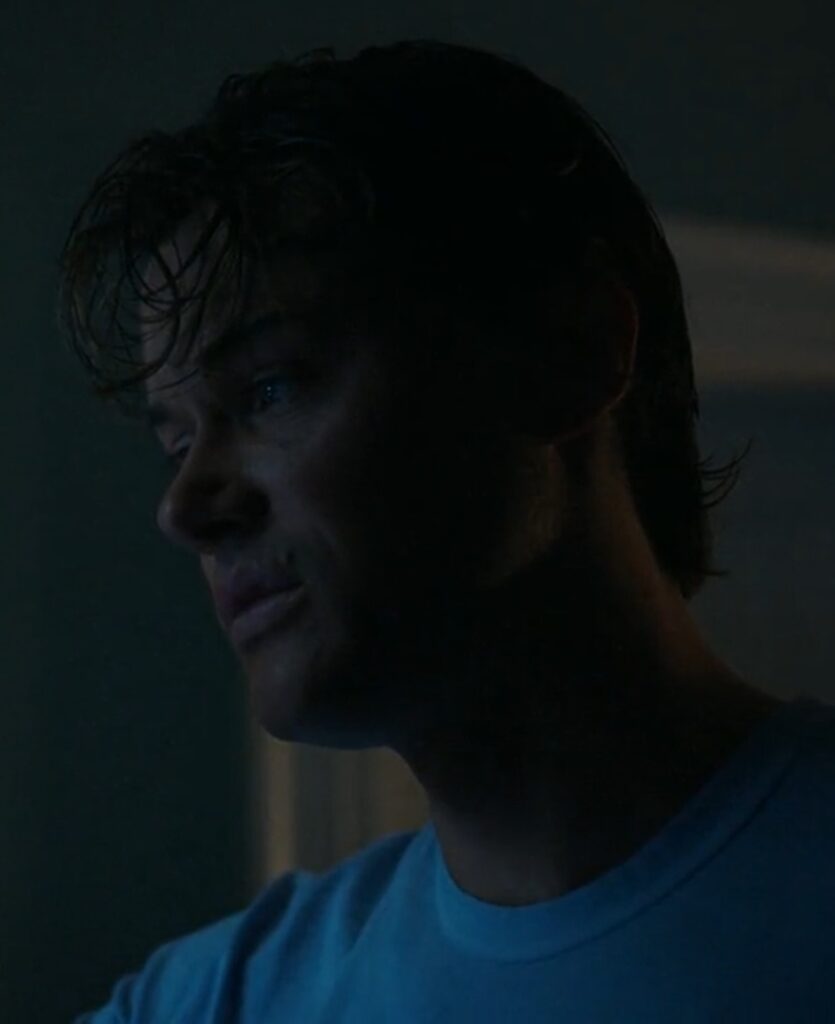
It’s that eldest sibling mentality that shapes so much of who Conrad is in the first place. And it factors into his relationships with others, whether they’re romantic, platonic, or even professional.
Exclusively tying that dynamic to Belly to frame their love story is at times an unusual choice because, in not showing us the indulgent, protective sibling nature at its nexus, but only showcasing how it applies to Belly, it weirdly muddles the waters.
We know what he has to gain — there’s not enough care in showing what he fears losing.
However, Conrad’s POV Also Spotlights How TSITP Fails the Fraternal Dynamic

To properly sell the narrative that Conrad is sacrificing not just to honor his promise to his mother but for his brother, we’d have to actually have a better sense of the fraternal dynamic.
Sadly, on TSITP, we don’t. And when comparing this to other love triangles that involve siblings, maybe that’s what makes things so bizarre.
Both Fisher brothers are battling some severe trauma and abuse from Adam that manifests in radically different ways. However, the series fails to provide them with sufficient individual attention or explore their dynamic as brothers, which could have added depth to this situation and its potential impact on them.
A love triangle among two brothers unfolds, where Belly’s choice of one over the other fundamentally changes the rest of their lives and how they carry on. That’s ridiculously high stakes.

However, we don’t get much room to really process just how high those stakes are because the series shafts the fraternal dynamic.
We have shallow touches of what they are as brothers. Jeremiah admires and is jealous of his brother, mainly because Adam favors Conrad and places him on a pedestal. Conrad feels duty-bound to Jeremiah and currently resents him for being with the woman he loves. And that’s it.
Not Exploring Conrad & Jeremiah’s Dynamic in Depth Beyond the Love Triangle is a Missed Opportunity
Not all siblings are close or even can be, so it’s not totally off the wall that the Fisher boys fall into that category, but by the third season, the series doesn’t give us much of anything to work with in regards to their dynamic.
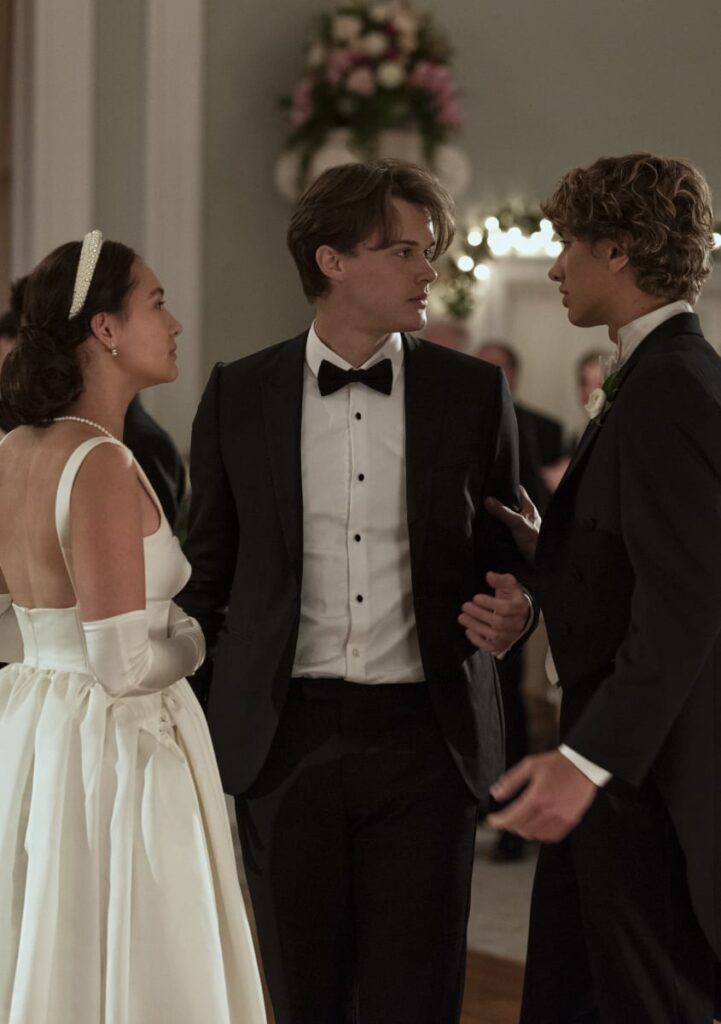
Perhaps the idea is for it to be much easier and more believable if Belly chooses one person over the other, allowing them to function properly as a family despite both loving and being intimate with the same girl, whom they’ve known their entire lives.
But even that feels a bit dicey, especially considering that the premise of the series rests on this trio growing up together.
We get little hints here and there, along with small gestures. Throwaway references to family trips, flashbacks to all the kids hanging out together, and things of that nature.
Jeremiah makes Conrad smoothies when he’s hungover and encourages and rallies others to help him study and get into college. Conrad indulges Jeremiah here and there, runs interference at times during high-stress situations, and goes on quests to fix problems to spare or protect him.
Most of the time, these are things that happen offscreen or with passing references, far and few between, without any real depth to them. There are a few moments, probably less than a handful worth, where their dynamic as brothers felt impactful onscreen.
Rare Glimpses Served the Narrative and Characters Well

The two dealing with the immediate news and fallout from Susannah’s diagnosis stand out, even when much of that was rooted in tension and contention as well.
And Jeremiah and Conrad having a genuine heart-to-heart in The Summer I Turned Pretty Season 2 Episode 8 was their top-tier moment yet — but in hindsight, it’s because they’re so rare.
Jeremiah: I know what you’re doing. You’re acting like a dick so no one sees how bad you’re hurting. You still love her, Con. Admit it.
Conrad: Yeah, I do.
Jeremiah: Then you need to tell her.
Cornad: Why? She chose you.
Jeremiah: It doesn’t feel like it. Not when she doesn’t know she still has a chance with you.
Conrad: No, she doesn’t care anymore. She’s done with me.
Jeremiah: Maybe. Maybe not. She deserves to know how you feel. If she… if she picks you, then… I’ll let her go. If it were anyone else in the world, I would fight like hell, but if you’re what she needs, then I won’t get in the way again. I just won’t. I just want her to be happy, and I want you to be happy, too.
Conrad: Me too.
Jeremiah: So, are you going to tell her? If you’re not going to do it for yourself or for her, then please do it for me.
Through that conversation, you got a sense of mutual love, respect, care — a genuine sense of protectiveness for both and also sacrifice. There’s also a sense of awareness.
Conrad still loved Belly but was holding back because of Jeremiah. And Jeremiah recognized that and even appealed to his brother’s sense of duty to him to get him to talk to Belly.
A sense of selflessness and sacrifice runs through many of the dynamics of this series, regardless of how people feel about the characters or their relationships.
The Fishers Influence the Fraternal Bond; the Narrative Disrupts or Ignores It

But Last Dance’s final scene pinpoints what’s most unsettling about the fraternal bond between the Fisher brothers.
There’s limited beauty in that dynamic, rarely an expression of affection or love, because most of the time, if the Fisher boys’ relationship gets any exploration at all, it’s contentious at worst and rooted in duty, obligations, and burdens.
Adam pits his sons against each other. He makes Conrad feel socially inadequate compared to Jeremiah, and treats Jeremiah like a failure for not being just like Conrad.
But Susannah? The woman around whom so much of TSITP’s legacy revolves is just as troubling at times.
Susannah Shapes So Much of the Narrative, For Better and Worse
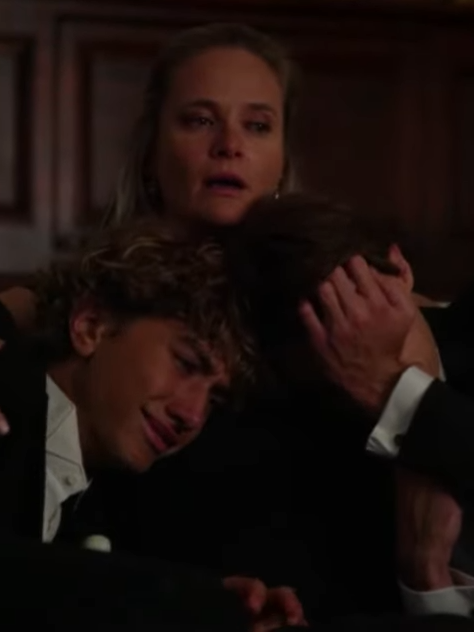
Where would Laurel be if she didn’t constantly compare her motherhood journey to how Susannah did it?
If Belly didn’t feel compelled to uphold some standards of womanhood and femininity, similar to those of Susannah?
Hell, where would Belly be if Susannah didn’t routinely tell her at a young age that she was destined to marry one of her boys?
Where would Jeremiah be if Susannah’s validation wasn’t tied to him being “sunny,” performative, and “on” all of the time?
And then there’s Conrad …

There was a lot to unpack with that final scene with Susannah. Before that, we know most of the series had Conrad struggling with keeping his mother’s prognosis secret and then trying to cope with it after the fact.
And he handled that in his own way, which often meant he wasn’t directly involved with Susannah onscreen.
So that moment gave us a peek into what it was like for Conrad in those final moments with his mother, similarly to how we had that with Belly and Susannah in TSITP Season 2.
Brotherhood is a Burden Instead of Acts of Love

But what was frustrating was hearing what transpired in that moment — it was the burden of brotherhood, the duty of looking after those younger than you, and this obligation to essentially “watch out” for his brother.
It’s irritating in a couple of ways. For one, it reinforces the notion that Conrad must uphold his status as a caretaker, and with Conrad, if you give him that idea, he takes it to an extreme with terrible execution.
For Conrad? As the eldest sibling, he often seemed to struggle with poor communication skills and taking on too much on his own without discussing things with his brother.
It also further reinforces his martyr complex, as he struggles to care for others without feeling compelled to sacrifice for them, instead of allowing them to open up and engage in conversation.
But it fortifies their fraternal bond as one of duty and obligation instead of genuine love, affection, and care. Jeremiah is the only other person who is experiencing similar things as him, from dealing with Adam to losing a parent.
Conrad & Jeremiah’s Dynamic Should Be Important TOO

Yet, in TSITP, he’s not Conrad’s built-in best friend who balances him out, or the only other person who sees and understands him, good, bad, and ugly. Jeremiah isn’t one of the only people capable of loving him unconditionally.
Instead, he’s an obligation, a task, a chore, and a burden. He’s the person who inspires resentment more than unconditional love or a weight rather than an ally or equal.
Sometimes, I can’t help but think about how both parents, and the narrative fails the brotherhood. And I also wonder what life looks like for them after this choice.
But I mainly think about what we missed out on in not getting a full scope of the fraternal dynamic to the same degree as the love story.
There’s nothing wrong with juggling many love stories at once, not just the romantic ones, right?
Watch The Summer I Turned Pretty Online

You made it to the end — and that means a lot.
We’re an independent site run by passionate fans, not studios or corporations. If you enjoyed this piece, please share it or leave a comment — it really does help.
-

Cracking the Code: How Prime Video is Quietly Taking the Young Adult Genre Crown
Young Adult content isn’t dead; it’s streaming. TSITP, Maxton Hall, We Were Liars, Prime Video is giving us what we want, and the numbers don’t lie!
-
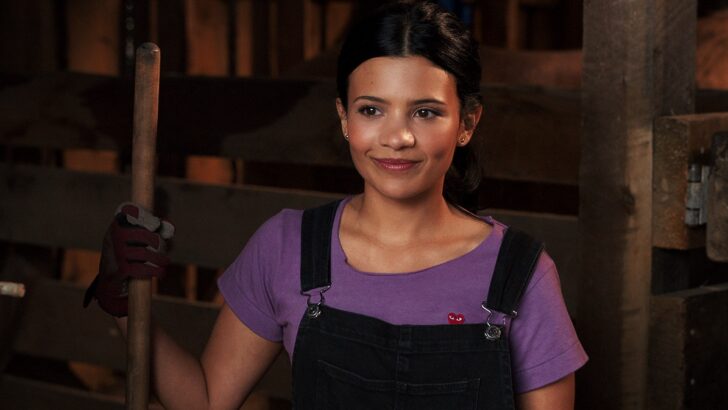
Family, Balance & Heart: My Life With the Walter Boys’ Trailer Reaffirms It’s Beyond a Love Triangle
It’s not just about choosing between two brothers, My Life With the Walter Boys’ trailer reaffirms that at its core, it’s about finding family, home, and healing.
-

How The Summer I Turned Pretty Explores Girlhood and the Glorification of Self-Sacrifice
From Belly to Taylor, The Summer I Turned Pretty Season 3 spotlights how graceful self -sacrifice is a rite of passage in girl and womanhood.
-
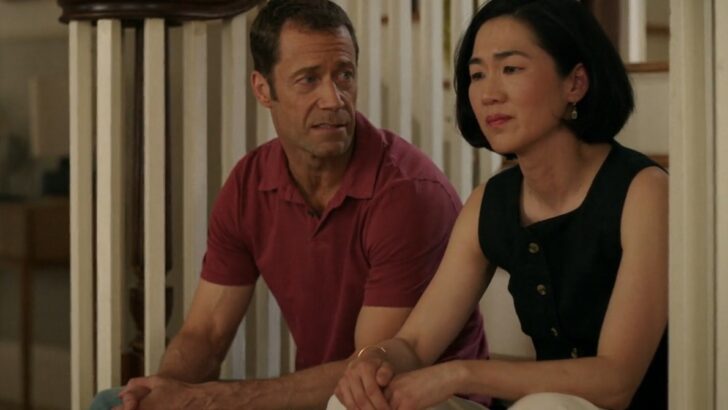
Soft Boys, Sad Boys & Bad Boys: What The Summer I Turned Pretty Reveals About the Perception of Masculinity
John and Adam, Jeremiah and Conrad, The Summer I Turned Pretty quietly reflects society’s perception of masculinity. We dive into how!
-
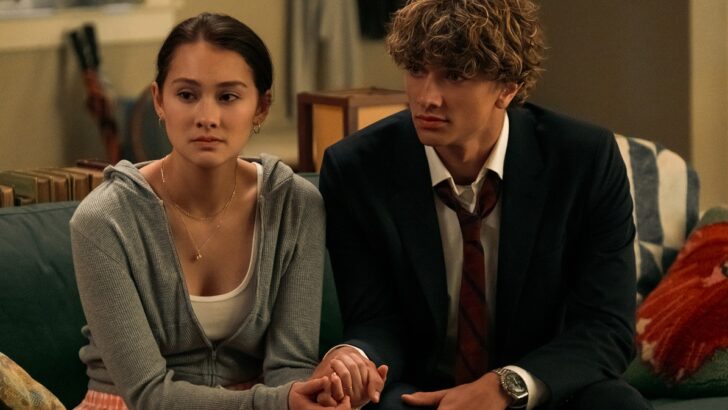
The Summer I Turned Confused: Why Is TSITP Struggling to Make a Case for Either Romantic Endgame?
Is The Summer I Turned Pretty’s final season actually trying to set up a romantic endgame? Because it doesn’t feel like it.
TV Fanatic is searching for passionate contributors to share their voices across various article types. Think you have what it takes to be a TV Fanatic? Click here for more information and next steps.
The post All Burden, No Beauty — How The Summer I Turned Pretty Tackles Duty, Obligation & Brotherhood appeared first on TV Fanatic.
